Poetry and Poetics

For the 2022-2023 graduate admissions cycle, the University of Chicago English Department is accepting only applicants planning to focus on poetry and poetics. Comparative and multilingual approaches to literature are welcome, as are students from international and diverse backgrounds. We are particularly interested in applicants whose intellectual projects engage with one or more of the following: comparative poetics; ecopoetics and environmental humanities; historical poetics; translation and translation studies; the poetry and poetics of migration, indigeneity, empire, and/or colonialism; hemispheric poetics and intercultural exchange; poetics in relation to sound and performance studies; poetry and inter-arts exchange; emerging archival practices; the convergence and polarities of creative and critical thinking; and poetry and poetics in relation to race, gender, class, and sexuality.
For more information, visit Admissions.
All applications must be completed online through UChicago Humanities Division's Online Application.
The Autumn 2023 application cycle is now closed. The application deadline was December 15, 2022.
Frequently Asked Questions
Q: Should I apply this year if my research interests are outside of the disciplinary focus for this year’s application cycle?
No. For the application cycle 2022-23 the department is only considering the applications of students planning to focus on Poetry and Poetics. However, if your interests include other topics in addition to primarily poetry and poetics we would be interested in considering your application.
Q: Will enrolled students be able to take courses and work with faculty outside of the research area specified in the admissions application?
Yes. New students will benefit from the robust array of poetry and poetics faculty and courses within the department but also from the entire departmental faculty, who have unanimously supported this admissions initiative and are uniformly committed to support the thriving of all of our graduate students, this year and thereafter. In addition, many of our students do coursework in other departments such as History, Cinema and Media Studies, Comparative Literature, etc.
Q: Will this year’s focus apply to future admissions cycles?
No. This year’s focus applies to the admissions cycle for the Autumn 2023 application cycle only.
Q: What kinds of courses are offered for graduate students?
For a list of current course offerings, please see our course catalog.
Partial List of Faculty Working on Poetry and Poetics
Suzanne Buffam
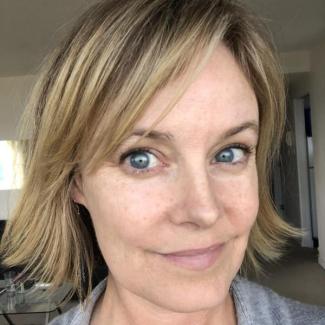
I am the author of three books—two collections of lyric poetry (Past Imperfect, 2005, and The Irrationalist, 2010) and a hybrid book-length poem in prose (A Pillow Book, 2016). My fourth book, currently in progress, will be a collection of microfictions / prose poems that explore the contradictions of contemporary life with regard to gender, class, aging, and mental health. What unites these books, across a range of forms and modes, is an attempt to leverage humor and irony in service of existential and metaphysical inquiry.
James Chandler
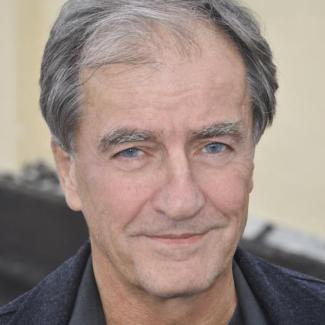
My research and teaching interests include the Romantic movement; the study of lyric poetry; the history of the novel; relations between politics and literature, history and criticism; the Scottish Enlightenment; modern Irish literature and culture; the sentimental mode; cinema studies; and the history of humanities disciplines. Poetry and poetics have always been central to my work, from my first book on Wordsworth through writings about Blake, Barbauld, Coleridge, Keats, Shelley, Byron, Tighe, Tennyson, Hardy, Yeats, and Heaney. My most recent book, Doing Criticism, returns to I.A. Richards famous experiments with student responses to poetry to find new departures for critical writing.
Alexis Chema
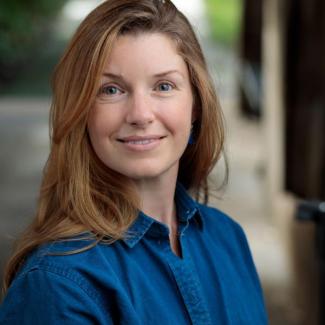
I specialize in Romantic literature and culture, with particular interest in poetry, visual art, and the civic functions they have been engaged to serve. The book I am writing, Roads of Excess: Poetry and Public Address in the Age of Revolutions, is about changes to the public sphere over the eighteenth and nineteenth centuries and the impacts these changes had on poetry—who wrote and read it, how it circulated, and, most of all, on how matters of language and style adapt to the perceived conditions of mass reading.
Rachel DeWoskin
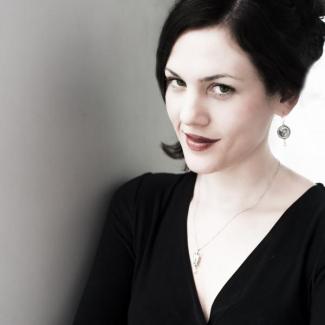
Rachel DeWoskin is the award-winning author of the poetry collection, Two Menus (University of Chicago Press, 2020); five novels: Someday We Will Fly (Penguin Random House, 2019); Banshee (Dottir Press, 2019); Blind (Penguin Random House, 2015); Big Girl Small (FSG, 2011); Repeat After Me (The Overlook Press, 2009); and the memoir Foreign Babes in Beijing (WW Norton, 2005). She has received a National Jewish Book Award, a Sydney Taylor Book Award, an American Library Association's Alex Award, and an Academy of American Poets Award, among others. Her poems and essays have appeared in journals including The New Yorker, Vanity Fair, Ploughshares, Agni, and and the anthologies New Voices from the Academy of American Poets, and Wherever I’m At (Chicago Literary Hall of Fame, 2022). DeWoskin is an Associate Professor of Practice in the Arts and an affiliated faculty member in Jewish and East Asian Studies. Her interests include lyric poetry, sonnets, and translations from Chinese, particularly Tang poems.
Rachel Galvin
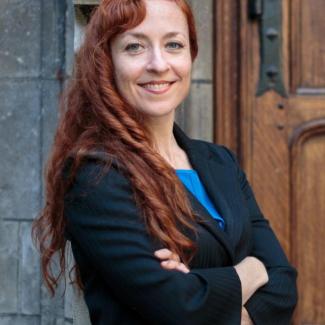
I am a scholar, poet, and translator. My research and teaching interests include twentieth- and twenty-first-century poetry and poetics in English, Spanish, and French; comparative literature, U.S. Latinx literature, Hemispheric Studies, war literature, multilingual poetics, the Oulipo, and the theory and practice of translation. I’m currently writing a book on Latinx poetry and hemispheric poetics, and often teach courses related to both. My first book, News of War: Civilian Poetry 1936-1945, is an account of how civilian poets confront the problem of writing about war, with a focus on literatures of the Spanish Civil War and World War II and an epilogue on contemporary poetry published in the U.S. about the wars in Iraq and Afghanistan. My newest poetry collection, Uterotopia,is forthcoming from Persea Books in Fall 2022. I also translate poetry from French and Spanish. Alongside teaching courses in the Departments of English and Comparative Literature, I teach in the Creative Writing Program and serve as the faculty lead for Translation Studies.
Edgar Garcia
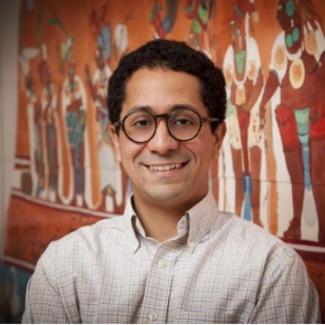
I am a poet and scholar of the hemispheric cultures of the Americas. My most recent book, Emergency: Reading the Popol Vuh in a Time of Crisis (University of Chicago Press, 2022), is a collection of 9 essays that show what this foundational creation story of the indigenous Americas (the Popol Vuh) has to teach people about the relation between emergency and emergence. My scholarship and poetry are likewise inquiries into the relation between crisis and creativity or world creation—often experimenting with literary and disciplinary form to bring ideas and feelings to life. My other works include Skins of Columbus: A Dream Ethnography (Fence Books, 2019) and Signs of the Americas: A Poetics of Pictography, Hieroglyphs, and Khipu (University of Chicago Press, 2020). Alongside my books, my work has appeared in such venues as Publications of the Modern Language Association (PMLA), Modern Philology, The Chronicle of Higher Education, American Religion, Portable Gray, Poetry Magazine, and Fence.
In addition to teaching in the Department of English and the Department of Creative Writing, in 2022 I also am serving as guest editor in chief of Fence, a journal of innovative literary writing. A more detailed description of my past and present work can be found here.
Timothy Harrison
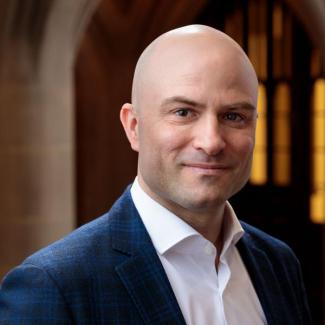
I am the author of Coming To: Consciousness and Natality in Early Modern England (University of Chicago Press, 2020). My current research focuses on the relationship between Renaissance and early modern literary texts (particularly lyric poetry), the first-person perspective, and the history of concepts across languages and cultures. With Jane Mikkelson, I am currently co-authoring a comparative study on how lyric poetry represents human mindedness in seventeenth-century English and Persian literary traditions. I have taught such graduate courses as: Creations: The Popol Vuh and Paradise Lost; The Uses of Fiction: Poetry and Philosophy in Early Modernity; and Early Modern Natality.
Chicu Reddy
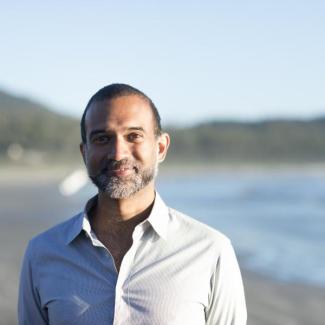
I’m a poet, scholar, and literary editor who studies poetry across a range of forms, historical periods, and regions. My most recent book of poetry, Underworld Lit, is a long narrative poem cast in the form of lecture notes for an imaginary course in the humanities; at the university I teach a variety of courses in literary studies and creative writing, with an emphasis on interdisciplinary work in the arts and humanities.
My research interests include modern American poetry, theories of global and transnational literature, and contemporary Asian American writing. In Fall 2015, I delivered the Bagley Wright Lectures in Poetry; these lectures, on poetry as an “affective technology” within a variety of historical periods and cultural traditions, is forthcoming from Wave Books.
In addition to teaching in the Department of English and the Program in Creative Writing, I also serve as Series Editor for the Phoenix Poets book series at the University of Chicago Press.
Jennifer Scappettone
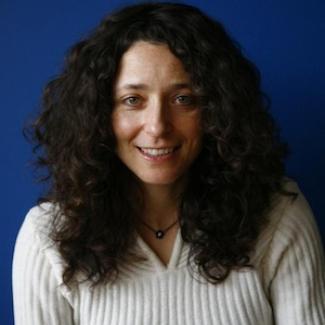
Jennifer Scappettone works at the confluence of the literary, scholarly, visual and performing arts, with particular research and teaching interests in poetry and poetics, translation and multilingualism, geography (both urban and natural), environmental humanities, documentary, and the relationship between writing, the present moment, and social change, across several departments. These interests come to bear in scholarly monographs like Killing the Moonlight: Modernism in Venice (Columbia University Press, 2014) and the forthcoming Poetry After Barbarism: Fascism, the Xenoglossic Word, and the Invention of a Motherless Tongue; Locomotrix, a collection of translations and scholarly glosses devoted to the work of the poet-refugee from Fascist Italy Amelia Rosselli (University of Chicago Press, 2012); and The Republic of Exit 43: Outtakes & Scores from an Archaeology & Pop-Up Opera of the Corporate Dump (Atelos, 2016), a transgenre scoring of the attempt to piece together environmental injustices surrounding a Superfund-listed landfill. Scappettone has worked solo and in collaboration with musicians, architects, code and movement artists on performances crafted in response to sites ranging from Trajan’s aqueduct on the Janiculum Hill to Fresh Kills Landfill. Her work has been recognized by fellowships and other honors by the Civitella Ranieri Foundation, the Stanford Center for the Humanities, the Bogliasco Foundation, the Academy of American Poets, and the American Academy in Rome, among others, and is currently on display at the Newhouse Center for Contemporary Art in New York City.
Special Collections and Archives
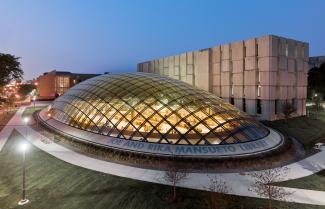
The Library builds and preserves research collections that support the present and future needs of its faculty, students, and staff. Thirty-eight percent of the Library’s collections are in languages other than English, supporting faculty research with a global impact and making the Library a mecca for international scholars.
The Hanna Holborn Gray Special Collections Research Center is home to the Library’s rare books, manuscripts, and the University of Chicago Archives. Highlights include:
- A comprehensive collection of print editions of Homer’s works
- Editorial files of Poetry: A Magazine of Verse
- Walt Whitman's original manuscript of "the Bible as Poetry"
- The Goodspeed New Testament Manuscript Collection
- The Ludwig Rosenberger Library of Judaica
- The Chicago Jazz Archive
The Library digitizes its own collections in order to provide greater access, preserve at-risk materials, and enable new forms of digital scholarship. One hundred subject-based collections, 44 archival collections, and 150 early manuscripts have been made accessible online, with items ranging from 4th century Egyptian manuscripts to early editions of the Maroon student newspaper to maps of Chicago before and after the Great Chicago Fire. Many more individual titles are available via our Library catalog and through our participation in the international digital preservation repository, HathiTrust.
Sample Courses
Creations: the Popol Vuh and Paradise Lost
Shakespearean Dramaturgies: Text/Medium/Performance and the Magic of the Theatre
The Print Revolution and New Readers: Women, Workers, Children
Ecopoetics: Literature and Ecology
Prosody and Poetic Form: An Introduction to Comparative Metrics
Modernist Poetry: Yeats, Eliot, Pound
Modernism and the Harlem Renaissance: Issues and Methods
William Blake: Poet, Painter, Prophet
The Means of Production: Contemporary Poetry and Literary Publishing
Affiliated Journals
Critical Inquiry has published the best critical thought in the arts and humanities since 1974, presenting articles by eminent critics, scholars, and artists on a wide variety of issues central to contemporary criticism and culture. Cofounded by faculty members of the Department of English, including Sheldon Sacks and Wayne Booth, the journal currently has English faculty member W. J. T. Mitchell as its editor and English faculty members Bill Brown, Frances Ferguson, Elizabeth Helsinger and Patrick Jagoda as its coeditors. Many English graduate students have worked on the Critical Inquiry staff over the years as well.
Modern Philology, formed in 1903, is one of the oldest journals of modern literary scholarship. This journal is unusual in that it is not dedicated to one field in literature (a chronological period) or to the literature of one country or language. But despite its wide range and reach (or perhaps because of this) Modern Philology has always been edited by professors in the Department of English; currently, Ellen Mackey, Josephine McDonagh, and Tim Campbell serve as co-editors. The journal publishes all sorts of high-quality literary studies, from the most "traditional" (source studies, etc.) to the most "advanced" (theoretically motivated essays, etc.).
Chicago Review is a literary magazine founded in 1946 and based at the University of Chicago. It is a premier venue for innovative poetry, fiction, essays, and literary criticism. Recent and forthcoming issues focus on the Black Arts Movement in Chicago, Jaime de Angulo, the Infrarealistas, Helen Adam, and Ed Roberson. The magazine is run by graduate students from across the disciplines, including many from the Department of English.
UChicago Centers Abroad

Graduate students are also free to work on projects at one of UChicago's centers abroad. The overseas centers expand opportunities for collaboration with universities, research institutes, and cultural organizations as well as provide research support for faculty and students.
Centers
Our students regularly work on projects sponsored by the following centers:
The Chicago Center for Contemporary Theory (3CT) The shared query that drives the center is: How do we theorize the present? 3CT supports work that interrogates systems of power and value, that proposes methods and frameworks for making sense of recent events and ongoing transformations, and that demands that theory be relevant to the world we live in. In doing so, we foster an interdisciplinary community of scholars, students, and practitioners who produce new forms of theory that help to illuminate both what is and what could be. Founded in 2004 by seven faculty members from the Divisions of the Social Sciences and the Humanities, our collective has grown to include eighteen fellows, enabling imaginative collaborations across the disciplines. Our intellectual activities include ongoing projects, lectures, teach-ins, book salons, conferences, publications, and teaching.
Gray Center for Arts and Inquiry The Richard and Mary L. Gray Center for Arts and Inquiry is a forum at the University of Chicago for experimental collaborations between artists and scholars. The Center seeks to intervene in existing structures that keep scholarship and the arts separate from each other, and to help reimagine new relationships between them. At the Center’s heart are its year-long collaborative fellowships involving at least two people, one from inside and outside the university community, who eventually co-teach a course open to undergraduate and graduate students. The experimental nature of the Gray Center’s work has yielded a wide variety of forms through which past, current, and prospective fellows share their work with diverse constituencies on campus, throughout Chicago and the US, and globally; these include the monthly public conversation series Sidebar and (virtually) FarBar; the experimental music/performance initiative Gray Sound; various conferences and symposia; and our biannual journal Portable Gray, published by University of Chicago Press and distributed to over 30 countries on 4 continents. The hallmark of the Gray Center is the creation of a zone of commitment that allows scholars and artists to take risks not otherwise possible given their professional profiles. The Gray Center, in short, is a place for serious play and genuine exploration.
Neubauer Collegium for Culture and Society The Neubauer Collegium cultivates communities of inquiry at the University of Chicago. Our faculty-led research projects bring together scholars and practitioners whose collaboration is required to address complex human challenges. Our Visiting Fellows program brings the best minds from around the world for collaboration, animating the intellectual and creative environment on campus. Our gallery presents art exhibitions in the context of academic research, and our public events invite broad engagement with the scholarly inquiries we support. The aim of these activities is to deepen knowledge about the world and our place in it.
The Franke Institute for the Humanities The Franke Institute for the Humanities is both an idea and a place. Conceptually, it represents the highest research and teaching ambitions of the University of Chicago, sponsoring creative and innovative work in established academic disciplines in the arts and humanities and encouraging new projects that cross traditional disciplinary and departmental lines. Materially, its physical space—a suite of offices and public rooms in the Regenstein Library—provides facilities where scholars and artists can do their work, and where that work can be tested and disseminated through discussions, debates, symposia, and public conferences.
Center for the Study of Race, Politics and Culture From its inception, CSRPC faculty affiliates, students, and staff have been committed to establishing a new type of research institute devoted to the study of race and ethnicity, one that seeks to expand the study of race beyond the black/white paradigm while exploring social and identity cleavages within racialized communities. Scholars affiliated with the Center have also endeavored to make race and ethnicity central topics of intellectual investigation at the University of Chicago by fostering interdisciplinary research, teaching, and public debate. Fundamentally, the Center is committed to contributing intellectually challenging and innovative scholarship that can help people transform their thinking and their lives. Towards those goals, the Center provides funding and other types of support for projects initiated by faculty affiliates, graduate students, undergraduates, artists-in-residence and visiting fellows. After extensive renovations in 2013, our building now features seminar rooms to host classes and workshops, space for our events and community activities and other resources.
The Karla Scherer Center for the Study of American Culture The Scherer Center helps coordinate the University’s rich and diverse scholarly interest in the study of American culture by sponsoring courses, seminars, and lunch-time discussions of new work; by bringing distinguished visitors to campus for lectures, symposia, and conferences; and by developing forums for meaningful interactions among scholars of different disciplines and the public.
Nicholson Center for British Studies In 2003, the Robert Nicholson Center for British Studies was formed in order to bring together the university’s strength in things British. To further this mission of interdisciplinary study, the center funds short- and long-term graduate research in the British Isles or Ireland, sponsors lectures in British Studies, hosts graduate-run conferences and other projects on topics of broad interest, and co-sponsors a variety of campus events involving British Studies.








